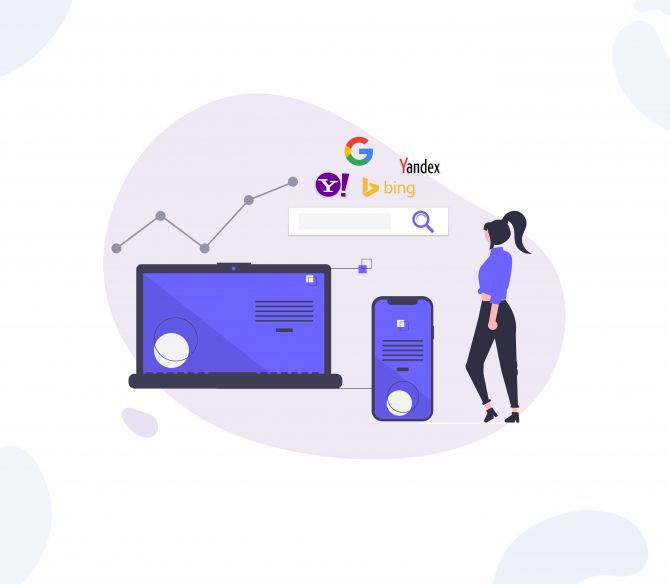
Summary:
When a user searches for a keyword relevant to your website, your website must be accessible and optimised. But how do you do that? And how do you know if you’re doing it right?
This is where your SEO score comes into play. It is an aggregate performance score of a webpage. It shows how well your website is optimised to rank higher on search engines. Since SEO is valuable in driving higher traffic, revenue, and conversions, an SEO score plays a critical role in assessing your website's health and quality.
This blog will talk about SEO score, various contributing factors, and the steps you can take to improve it.
What is an SEO Score?
Your SEO score establishes your website’s ranking on various search engines. Measured on a scale of 100, it relies on different parameters that affect crawlability, and ultimately, your website’s reach to your target audience.
A high SEO score, preferably between 80-100, indicates that your website meets the quality criteria and is likely to rank higher on Google. However, Google doesn't consider it while indexing the website. Search engines only determine the various aspects of your SEO score to rank your website. This means your SEO score is intrinsically linked to search engine rankings. Remember, SEO optimisation can lead to organic growth in traffic as well as revenue, and your SEO score is reflective of that.
What affects SEO Score?
Here are the four critical factors that directly contribute to your SEO score-
A. Technical Parameters
The technical aspects will determine how easy it is to access, crawl, and index your website by web crawlers. Your website's technical health holds a high weightage in your SEO score and considers the following-
- Site structure
- Page speed
- URL structure
- Indexing
- Server response
Backend issues in any of these areas can often go unnoticed without assistance from a digital marketing agency that specialises in SEO services.
B. Content
The quality of your website content holds equal weightage in your SEO score. A digital marketing agency with experience in content creation can help you optimise your content. Search engine algorithms assess your content's structure, relevance, engagement, and more. Here are the key aspects that contribute to content SEO score-
- Meta description and meta titles
- Number of internal links
- User metrics like bounce rate, time on page
- On-page SEO factors
C. User Experience
How easily the visitor can navigate your website makes up for the user experience. To achieve a high SEO score, consider how quickly the images load, how responsive they are, and how easy it is to scroll on your website, including click depth, site structure, internal linking.
D. Mobile-friendliness
Google now prioritises mobile-first to rank your website. So you must focus on mobile SEO for higher ranking and ensure that your website is rendered quickly across multiple devices.
Here, the following factors affect your SEO score-
- Design responsiveness
- Touchscreen compatibility
- Speed of loading
How to Boost Your SEO Score?
In order to boost your SEO score, you need to address all issues in the above mentioned areas. Here's how-
Run a Site Audit
Since your website's technical health holds the most importance, deploy an experienced SEO company in India to run a site audit. They will highlight any significant technical issues on your website like,
- Slow loading speed
- JavaScript errors
- Server status errors
- Issues with image alt texts
Once you have successfully addressed any such technical problems, rerun a site audit to check for improvements.
Focus on On-Page SEO
The next step is to check the quality of your website content and optimise it for SEO. This includes targeting the right keywords through extensive keyword research based on search volume and intent, writing meta descriptions, creating relevant content, and so on.
Another vital aspect is optimising your website images for faster loading and enhanced user experience that drives traffic to your website. Furthermore, you can strategically use internal linking to send authority to the other pages on your website.
Make Your Website Mobile-Friendly
As a lot of people use their mobile devices to search on the internet, Google uses a mobile-first index to rank your website. So, you must ensure a mobile-friendly website that loads faster, is optimised for different screens and is easy to navigate.
For this, you can use SEO services or Google's Search Console that notifies you about any mobile usability issues with the website.
Therefore, SEO score is an indicator of how optimised your website is, and to boost it, you need to focus on a multitude of factors ranging from technical aspects to making content user-friendly. Once these factors are seamlessly woven into place, your website will automatically rank higher on search engines and lead to a fulfilling experience for your customers.






